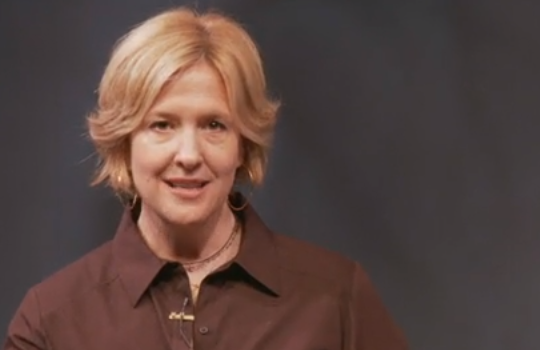This article is based on a 2010 TED talk from Brené Brown, a research professor at the University of Houston Graduate College of Social Work. Brené has spent over 10 years studying vulnerability worthiness, shame and courage. Her TED talk has racked up over 15 million views and is a superb, personal insight into the terrible, negative power of shame in society and how we must embrace vulnerability if we wish to be creative and innovative.
Vulnerability is NOT weakness. That myth is PROFOUNDLY dangerous.
It’s emotional risk, exposure, uncertainty. It’s the most accurate measurement of courage we have.
After my first TED talk, businesses called and asked me to talk – but they asked me to omit vulnerability and talk about innovation, change and creativity.
Yet vulnerability is the birthplace of innovation, creativity and change. To create is to make something that has never existed before and there’s nothing more vulnerable than that.
We must talk about shame when we discuss vulnerability
No-one wants to talk about shame – but what I learnt about creativity and innovation I learnt from studying shame.
James Hollis called shame the ‘swampland of the soul.’
Shame drives two big broken records:
- “I’m never good enough.”
- “Who do you think you are?”
Here’s a famous quote from Roosevelt: “It’s not the critic who counts; not the man who points out how the strong man stumbles, or where the doer of deeds could have done them better. The credit belongs to the man who is actually in the arena, whose face is marred by dust and sweat and blood.”
You put your hand on the door to enter the arena and you say “I’m gonna try this.” Shame is the gremlin that says “Uh uh, you’re not good enough, you never finished that MBA. You aren’t a good mother. Your wife divorced you.”
Shame is NOT guilt
Shame is a focus on self while guilt is a focus on behaviour. Shame is ‘I am bad,’ guilt is ‘I did something bad.’
Shame is HIGHLY correlated with addiction, depression, violence, aggression, bullying, suicide and eating disorders. Guilt is INVERSELY correlated with these things.
The only people who don’t experience shame, as far as we know, are those that have no capacity for empathy or connection.
Shame in women
“I can work full time, come home, cook a meal and never let my husband forget he’s a man.”
For women, shame is ‘do it all, do it perfectly, and never let them see you sweat.’ Shame for women is this web of unattainable, conflicting expectations about who we’re supposed to be – it’s a straitjacket.
Research from Boston College found the top four norms women feel they need to conform to:
- Nice
- Thin
- Modest
- Use all available resources on appearance
Shame in men
For men it’s not a bunch of conflicting competing expectations, shame is one – to be perceived as weak.
Research from Boston College found the top four norms men feel they need to conform to:
- Emotional control
- Primacy of work
- Pursuit of status
- Violence
What contributes to the shame cycle?
If you put shame in a petri dish, it needs three things to grow exponentially:
- Secrecy
- Silence
- Judgement
What is the antidote to shame?
If you douse shame with empathy in the petri dish, it can’t survive!
Shame is an EPIDEMIC in our culture. To get out from underneath it, to find our way back to each other, we must find out how it affects us, our parenting, how we see each other.
The two most powerful words when we’re in struggle with shame are “me too.”
Closing thoughts – practical takeaway
Vulnerability is the path to finding our way back to each other.
It’s seductive to stand OUTSIDE the arena thinking ‘I’m going to go in there and kick some ass when I’m bulletproof, when I’m perfect.’
But the truth is – that NEVER happens, and even if you get as perfect as you can and as bulletproof as you can muster, once you get in there… that’s not what people want! People want to see you go into the arena and want to be there with you.
What we want is for everyone, especially those we care about, to dare bravely.










